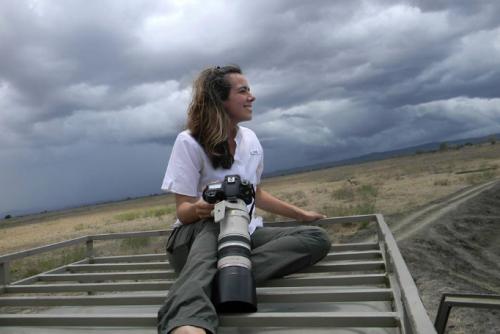Study Abroad
Study abroad provides an excellent opportunity to translate the cross-cultural aspects of anthropology to the real world. While at GW, many anthropology students travel to universities around the world to broaden their perspective in their field of interest and explore future career paths.
Transferring Credits
Before studying abroad, students should review the Anthropology Department’s guidelines:
Think about your goals for study abroad. Do you need specific course credit, or do you have the flexibility to enjoy the study abroad experience independently of any academic credit you might earn? The answer to these questions will help you pick a program.
If you need specific credits: Stick to more traditional classroom programs abroad that have anthropology departments. The easiest credits to transfer come from defined courses offered by formal anthropology departments, regardless of the country or institution. Programs that emphasize hands-on experience over academics are less likely to be approved for transfer credit.
If hands-on experience is more important than credits: You have the flexibility to pursue experiential learning programs with more hands-on opportunities outside the classroom.
Courses must have an anthropological focus in order to earn transfer credit. Course reading lists and lecture focus topics will help determine this.
Keep copies of readings, syllabi, reading lists and major papers. Your ability to provide these things may determine whether or not you can get credit.
Questions about possible courses for credit? Speak to the relevant faculty member in the Anthropology Department about what qualifies for credit in their course.
If the intended courses for transfer fit these guidelines, students may proceed with submitting courses for approval on the Office for Study Abroad website.
Unconventional Study Abroad Course Criteria
The Anthropology Department faculty has written criteria for evaluating study abroad transfer credit requests, especially from unconventional programs — those that do not directly match a GW course description. These guidelines apply to anthropology courses only, and do not necessarily prevent students from obtaining credit from another department or from the Columbian College for general requirements.
Anthropological Content. Course must demonstrate a primary focus on anthropological content through homework, assigned readings, topics of instruction and approach to the subject matter. Courses on specific societies (e.g., Contemporary Japanese Society), subgroups (e.g., Urban Youth in Brazil) or other topics (e.g., Political Culture in South Africa) that are approached from other disciplinary perspectives will not be granted Anthropology Department credit.
Unconventional Learning. Students in unconventional learning programs such as the School for International Training (SIT) or Council on International Educational Exchange (CIEE) must supply a list of lecture topics, copies of all their assignments and a full reading list for review by the department study abroad advisor in order to be considered for credit. Credit will be determined based on an evaluation of the equivalence of that work to comparable work at GW.
Independent Study Credit. Generally, no more than three total transfer credits will be granted to any student for any combination of a field study seminar and independent study project, regardless of the credit equivalence given by the program. Credit will be granted after an evaluation of the actual work done and may thus result in fewer than three credits. Students must present all work to the Anthropology Department study abroad advisor in order to be considered for credit.
Course Credit Equivalencies. Generally, credit for approved courses taken in unconventional study programs will be designated by the Anthropology Department as Variable Topics or Special Topics courses. When there is a direct correspondence to a GW course (usually courses on culture or prehistory numbered in the 3700s and 3800s), approved courses will transfer with the equivalent course number. Direct equivalence will not be granted to field seminars and independent study projects (or similar) for ANTH 3531: Methods in Sociocultural Anthropology or ANTH 3501: Anthropology of Development, and generally not other courses in the 3400s, 3500s, or 3600s. Under no conditions will credit for ANTH 1001, 1002, 1003 or 1004 be granted for unconventional study courses.


